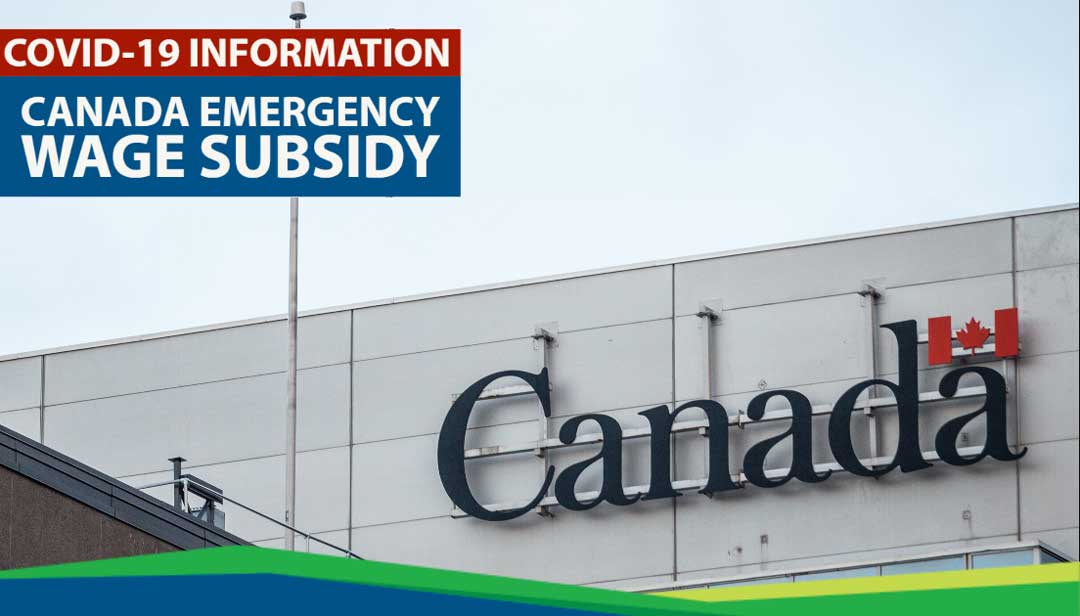
On July 17, 2020, the Government of Canada released details, as well as draft legislation, in respect of a redesigned Canada Emergency Wage Subsidy (CEWS) program effective from July 5, 2020. Pursuant to the backgrounder, the estimated total fiscal cost in 2020-21 for the CEWS program as announced on July 17, 2020 is $83.6 billion.
Below are highlights of the key changes, which are subject to the approval of Parliament.
- Extension of the CEWS: The CEWS will be extended until December 19, 2020. The redesigned CEWS program will apply to:
- Period 5 – July 5, 2020 to August 1, 2020;
- Period 6 – August 2, 2020 to August 29, 2020;
- Period 7 – August 30, 2020 to September 26, 2020;
- Period 8 – September 27, 2020 to October 24, 2020; and
- Period 9 – October 25, 2020 – November 21, 2020.
The Government has not released full details for Period 10 (i.e., November 22, 2020 to December 19, 2020).
- Elimination of 30% Revenue Decline Threshold: The Government has eliminated the 30% revenue decline threshold for Period 5 and onwards, with the amount of the CEWS now being correlated to the extent of an employer’s decline in revenue (subject to a safe harbour for Periods 5 and 6, as described more particularly below).
- Two-Part Subsidy Amount for Active Employees: For Period 5 and onwards, the CEWS for a week in respect of an “active” employee (i.e., an employee who is not on leave with pay for the particular week) will consist of two parts:
- A base CEWS amount will be available to all eligible employers who have experienced a decline in revenue, determined by comparing monthly revenue in the month to the same month in 2019 or the prior month to the prior month in 2019 (or, in certain circumstances, monthly revenue in the month or the prior month to average monthly revenue in January and February 2020). The base CEWS amount will be computed as a specified rate (which will vary based on revenue decline) applied to the amount of eligible remuneration of up to $1,129 paid to an eligible employee per week. Eligible employers with a revenue drop of 50% or more will be eligible for the maximum base CEWS rate, while those experiencing less than a 50% revenue drop will be eligible for a lower base CEWS rate. The maximum base CEWS rate will be reduced gradually over the qualifying periods from 60% in Periods 5 and 6, to 50% in Period 7, to 40% in Period 8 and to 20% in Period 9. Accordingly, the maximum weekly base CEWS amount (i.e., the amount payable in respect of an employer experiencing a 50% or greater revenue drop) will be $677 in Periods 5 and 6, $565 in Period 7, $452 in Period 8 and $226 in Period 9.
- A top-up CEWS amount of up to an additional 25% will be available for eligible employers who have experienced a revenue drop of more than 50%, determined by comparing average monthly revenue in the preceding three months to the same months in 2019 (or, in certain circumstances, to their average monthly revenue in January and February 2020). The top-up CEWS rate will be equal to 1.25 times the average revenue drop that exceeds 50%, up to a maximum top-up CEWS rate of 25%, which is attained at a 70% revenue drop. The top-up CEWS amount will be computed as the applicable top-up CEWS rate applied to the amount of eligible remuneration (not exceeding $1,129) paid to an eligible employee per week.
Source: McCarthy Tétrault, July 19th, 2020
Newsletters
No Results Found
The page you requested could not be found. Try refining your search, or use the navigation above to locate the post.
Events & Sponsorship
No Results Found
The page you requested could not be found. Try refining your search, or use the navigation above to locate the post.
Articles & Publications
SCAM ALERT! Beware of COVID-19 fraud
SCAM ALERT! Beware of COVID-19 fraud. The Peterborough Police Service is warning residents that scams related to COVID-19 are beginning to circulate across Ontario. Although the service has not officially received a complaint or report of the activity in its...
Ottawa extends tax deadline to June 1 due to coronavirus
Canadians will have extra time to file and pay income taxes to the Canada Revenue Agency, as the federal government looks to provide financial support for people and businesses in the midst of the coronavirus crisis. Prime Minister Justin Trudeau unveiled an $82...
Canada’s COVID-19 Economic Response Plan
The Government of Canada is taking immediate, significant and decisive action to help Canadians facing hardship as a result of the COVID-19 outbreak. On March 18, 2020, the Prime Minister announced a new set of economic measures to help stabilize the economy during...
Tax Update 2020. What you need to know before you file?
What you need to know before you file? Let’s face it, having a trusted accountant and tax preparer can help to make tax-filing less and less painful even for the do-it-yourselfers.Still, whether you’re outsourcing the work to an algorithm or an accountant, it’s always...
Tax changes for 2020
The government recently announced increases to the basic personal amount for 2020 and subsequent years beyond the normal inflationary adjustment. Let’s take a look at some of the new tax numbers coming for 2020. ANNUAL INFLATION ADJUSTMENT Each year, most income tax...